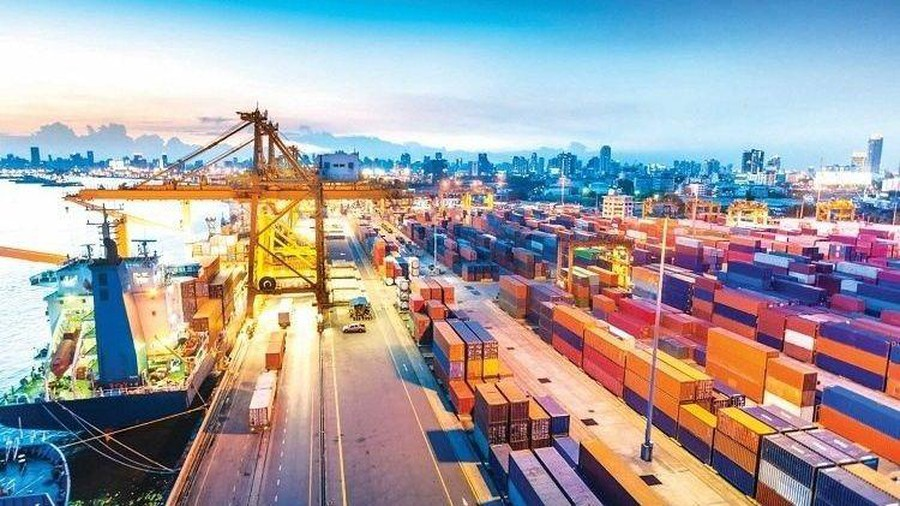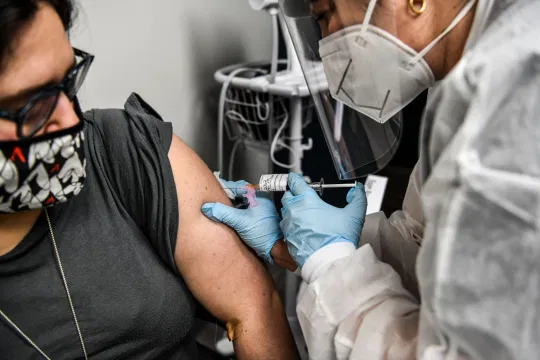Illegal entrants feared to be imminent risk to COVID-19 outbreak in Vietnam
| Is this good time to invest in Vietnam? | |
| Thanksgiving Day 2020: How to celebrate safely amid Covid-19 pandemic | |
| COVID-19 vaccines could get green light from EU regulator late 2020, early 2021 |
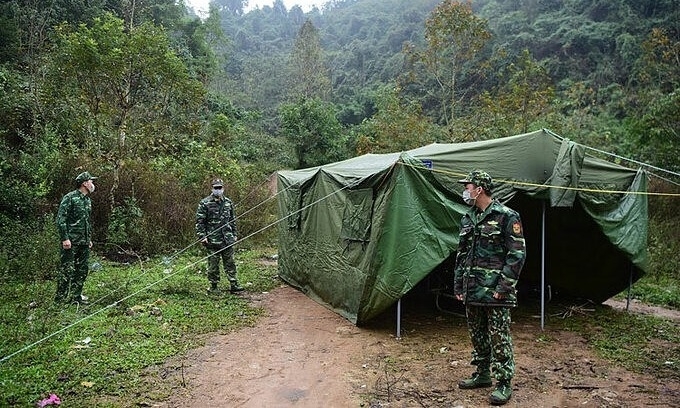 |
| Border guards on duty at a station near the China border in Lang Son Province, February 2020 (Photo: VNE) |
"The risk of Covid-19 transmission from outside the country is very high," Health Minister Nguyen Thanh Long said Tuesday at an online conference to discuss stepping up measures against the Covid-19 pandemic in the "new normal" period.
Vietnam, with its population of 96 million, has gone 81 days without new community transmissions even as the pandemic situation worsens in other places. Many European countries are re-imposing lockdowns to contain new Covid-19 outbreaks.
"The population of infected patients in other countries is very high, so preventing Covid-19 infections has become much more difficult. If the Vietnamese health system was placed in the same context as those countries, it would be difficult for us to meet the treatment needs," Long stressed.
The rising number of illegal entrants is posing a major threat to the country's anti-Covid-19 fight, Long said.
So far this year, over 20,000 people have illegally entered the country. On Monday alone, 77 illegal entrants were discovered in the northern region.
Major General Nguyen Duc Manh, deputy commander of Vietnam Border Guard, said that the tricks deployed to enter the country illegally are becoming increasingly sophisticated. Some people have even counterfeited documents to prolong their stay in Vietnam or stayed illegally in hotels and rented apartments, Manh said.
For instance, some workers from Laos who didn't want to be quarantined entered the country illegally through open trails while workers from Brunei did so via sea routes, not making health declarations or being quarantined, as mandated.
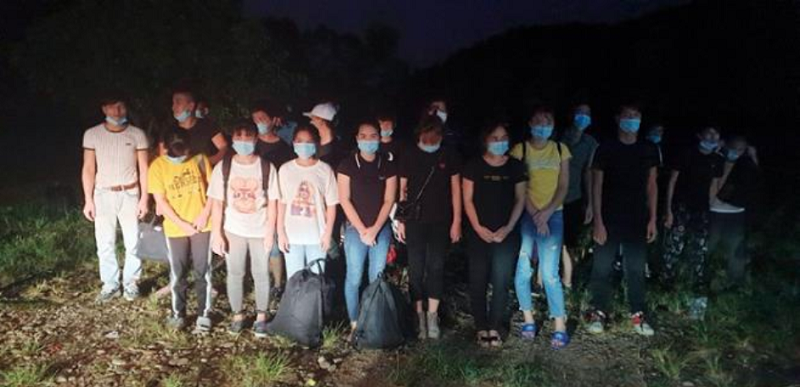 |
| An increase in immigrants are found in Vietnam (Photo: Bien Phong Bac Son) |
Another complication is that of Vietnamese people leaving and re-entering the country illegally from neighboring countries (China, Laos, Cambodia, etc.) and escaping quarantine.
"They contact each other with unregistered SIM cards (that can be trashed after use) and then rent motorbike taxis or taxi cabs to illegally enter Vietnam.
In some cases, they hide in cargo ships, fishing vessels and container trucks to enter Vietnam," he added.
Manh said that the fight against the pandemic was going to take a long time, and the number of illegal entrants, which is expected to increase, exacerbates the problem.
A rising number of Chinese illegal immigrants sneaking into Vietnam to gamble or work have been caught recently. In August, a Chinese man who illegally entered HCMC was confirmed positive for the novel coronavirus and deported after recovering.
Vietnam closed the doors to foreign nationals on March 22 and suspended international flights on March 25. It only allows Vietnamese nationals and foreigners who have diplomatic or official passports or are experts or high-skilled workers to enter the country now.
Another problem increasing the risk of further outbreaks is lax management at quarantine facilities in screening and isolating people, especially hotels, Long said.
He said frozen foods imported into Vietnam from pandemic-stricken countries must be tested for Covid-19, given the virus' ability to survive on the surface of frozen food for a long time.
China, once the epicenter of the coronavirus, is now concerned that imports of frozen foods could spread the novel coronavirus, and has rolled out mass-testing campaigns.
With aggressive tracing and mass testing, Vietnam successfully contained the second Covid-19 outbreak that hit the country last July after more than three months without community transmission.
Vietnam's Covid-19 tally stands at 1,316 now, with 35 deaths.
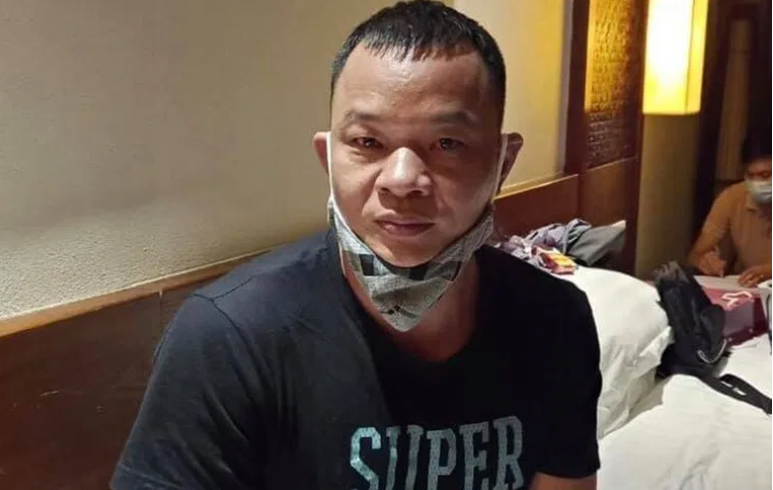 |
| Gao Liang Gu, the Chinese national arrested for illegally bringing foreigners to Vietnam ( Photo courtesy of Public Security Newspaper) |
| In early August, the country tightened its clampdown on the illegal entry of Chinese citizens as it raced to bring the COVID-19 outbreak under control. In the same time period, six men were setenced to between two and six years of prison each for smuggling Chinese citizens into Vietnam. They were reportedly paid 4,000 yuan (US$573) for each smuggled individual,according to Vietnam Insider. Major General To An Xo, chief of the office of the Ministry of Public Security, said there had been an increasing number of illegal entries from neighboring countries, mainly China. At a regular press meeting on Monday, Xo said China had been suffering from the pandemic and other natural disasters, so a number of Chinese nationals had entered relatively safe Vietnam to find work or to travel. He said 177 of them had illegally entered the country since June. Others had crossed through Vietnam to go to Cambodia for gambling activities, reported the An Ninh Thu Do newspaper run by the Hanoi police. Prime Minister Nguyen Xuan Phuc ordered the Ministry of Public Security and local authorities to investigate the illegal entries on July 25, the day Vietnam confirmed its first local infection in 100 days, according to the Ministry of Health. Vietnam banned the entry of foreigners and suspended international flights in late March. Only repatriated citizens and some foreigners have since been allowed in under strict conditions, including a 14-day mandatory quarantine. The 1,400km border between Vietnam and China is extremely porous, with a complicated geography characterised by mountains and rivers – especially in the north – that makes it difficult to monitor cross-border traffic, according to Mimi Vu, an independent Vietnamese-American anti-trafficking expert based in Saigon. |
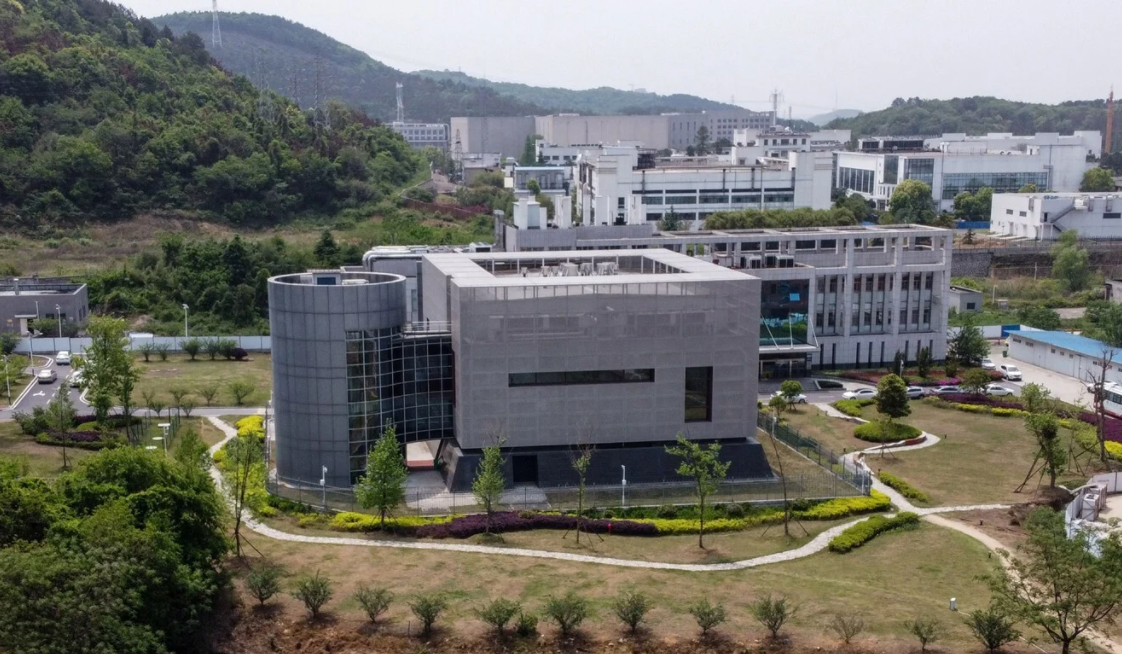 | China suggests Italy may be the birthplace of COVID-19 pandemic New research suggests the pathogen infected people across the country months before it was detected in China. |
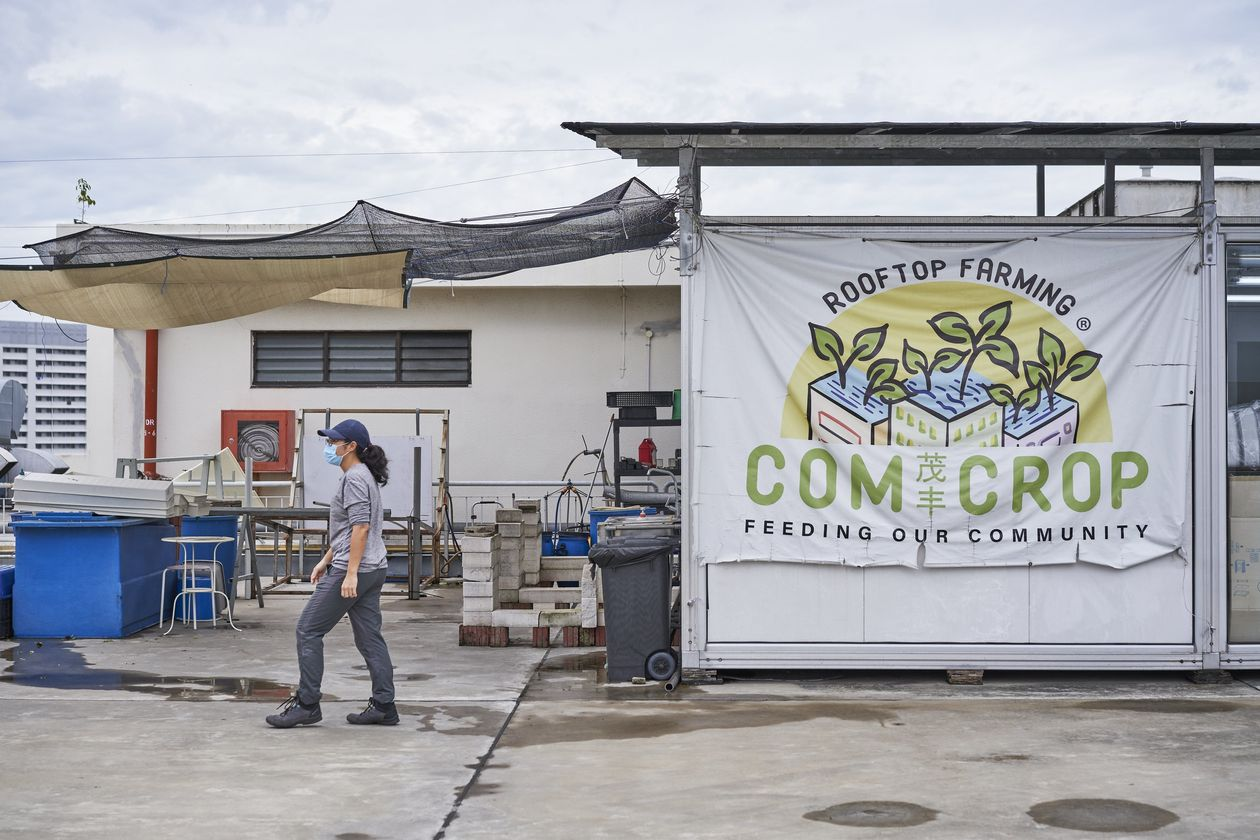 | Singapore turns to farming amidst COVID-19 Singapore is turning to growing food in the context of COVID-19, and the city-state plans to produce 30 percent of food it consumes by 2030. |
 | FDA approves Regeneron antibody cocktail for COVID-19 treatment Regeneron Pharmaceuticals Inc.’s antibody cocktail received an emergency use authorization from U.S. drug regulators for treatment of early Covid-19 symptoms, adding to the expanding arsenal ... |
Recommended
 National
National
Shangri-La Dialogue 22: Vietnam Highlights Some Issues of Ensuring Stability in a Competitive World
 National
National
Vietnam News Today (Jun. 3): PM Pham Minh Chinh to Attend UN Ocean Conference, Visit Estonia, Sweden
 National
National
Vietnam News Today (Jun. 2): Vietnamese Trade Mission Sounds Out Business Opportunities in United States
 National
National
Vietnam News Today (Jun. 1): Vietnamese, Japanese Firms Foster Partnership
Popular article
 National
National
Vietnam News Today (May 31): Vietnam Strongly Supports Laos’s National Development
 National
National
Vietnam News Today (May 30): Vietnam, Venezuela Reinforce Ties Through People-to-people Diplomacy
 National
National
Vietnam News Today (May 29): Vietnam and Hungary to Expand Cooperation into New Areas
 National
National

